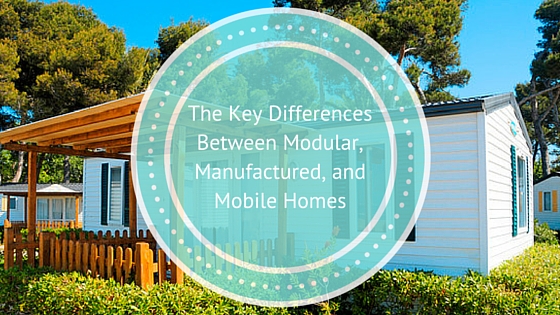
For some individuals, the idea of owning their own home is a concept that might require a different take on simply buying a standard house in the traditional manner. While that may be due to respective tastes, in many situations, that approach is dictated by the finances available at the time.
Regardless of those circumstances, looking at the possibility of purchasing either a modular, mobile or manufactured home might be the next step. Basic Components believes that it’s important to know key differences between these three types of residences. That will help create a greater awareness of what the person is seeking.
Different Homes Defined
Knowing exactly what is meant by each of these types of homes can be confusing for some, since mobile and manufactured are often seen as interchangeable terms with little difference. That definitely isn’t the case, since mobile homes are only those factory-built homes that were built prior to June 15, 1976.
At that point, manufactured homes became the approved term due to the Federal Manufactured Home Construction and Safety Standard Act. This legislation mandated that quality standards for what had been known as mobile homes be raised considerably. All of these homes must be in compliance with Department of Housing and Urban Development codes, with performance standards that must be met.
In contrast, modular homes (which are also known as prefabricated homes) only need to be in line with local building codes. That can be much easier to deal with, since an individual can speak with a person face to face to discuss an issue as opposed to dealing with a faceless bureaucrat over the phone.
Construction Time
Choosing to build a modular home will allow that residence to be built in approximately half the time of manufactured housing. That’s because each portion of that home can be simultaneously built before then being pieced together like a puzzle when everything is completed.
That ability to literally put a home together also means that those individual units can be taken apart if circumstances warrant, something that’s not possible with manufactured homes.
Additional Levels
Due to the flexibility of a modular home, those seeking to add additional levels to their residence can do so, which is also in contrast to the limitations of the manufactured and mobile home.
Mobility
As a successor to the mobile home, a manufactured home has a metal frame or chassis that serves as a foundation. This makes it easier to take the structure and move it. In contrast, a modular home remains in place.
Depreciation & Financing Issues
The value of a modular home won’t decrease, which can’t be said about those that are manufactured. Also, financing for modular homes is the equivalent of obtaining a traditional home loan.
Basic Components has been around since 1986, aiding those in the factory-built housing market. We know that whether you lean toward modular homes, manufactured homes or are partial to mobile homes, having the products to do the job right is the first step. Contact Basic Components for all your factory-built housing needs.

